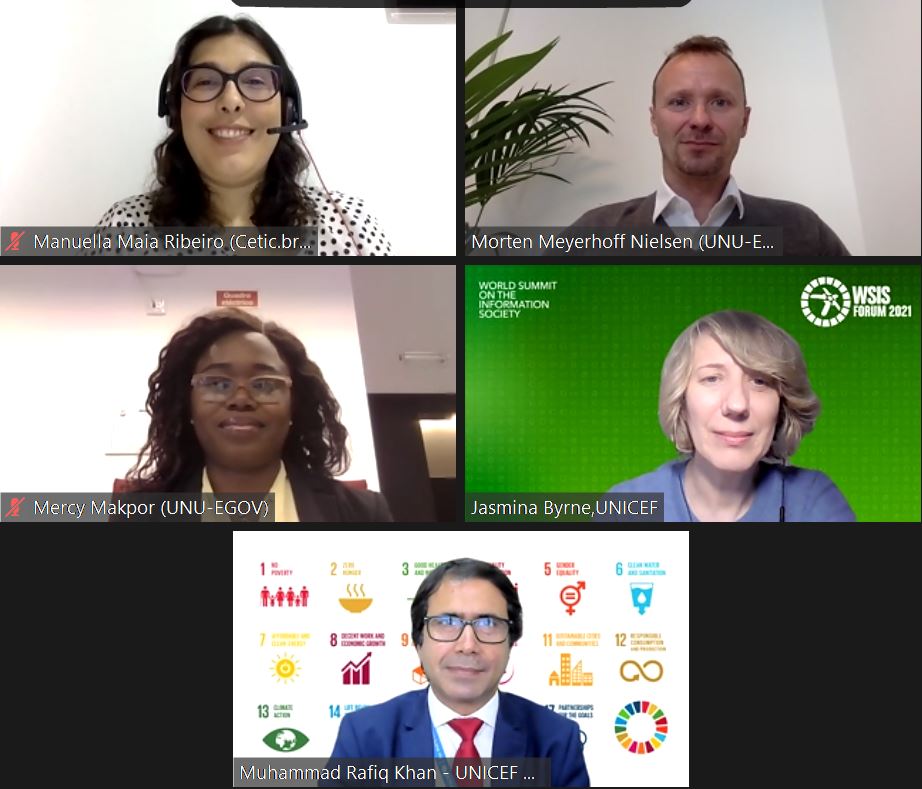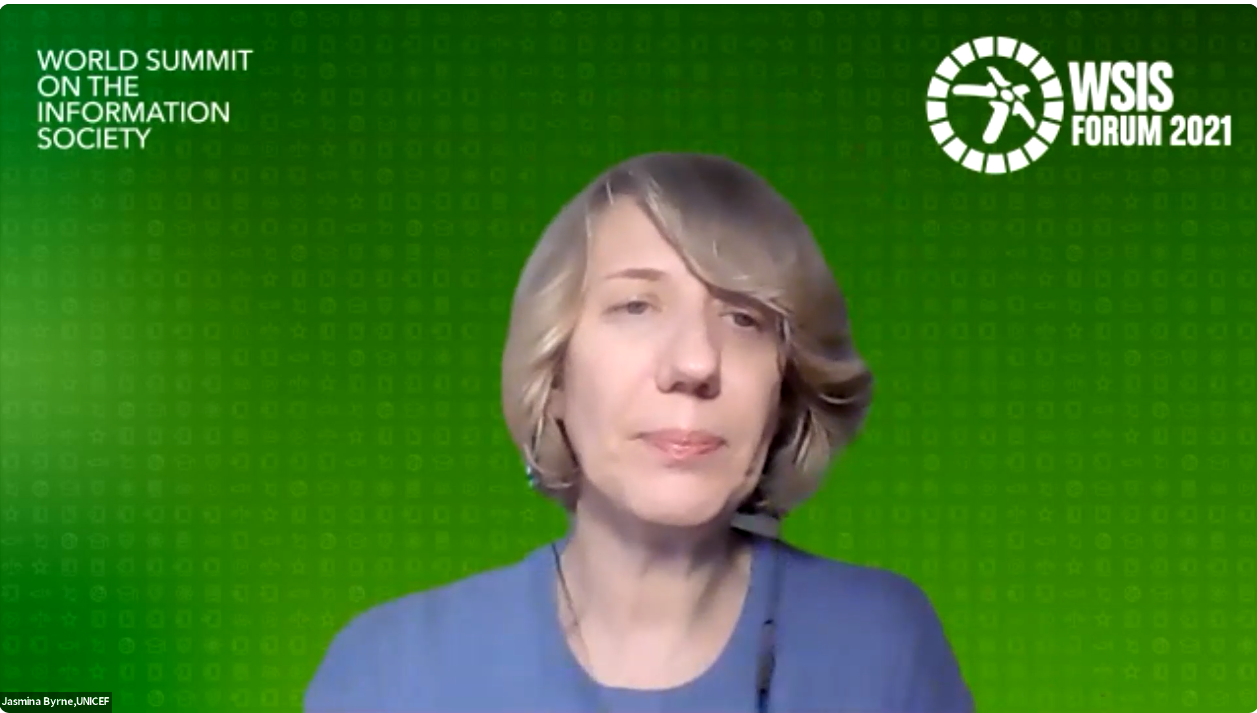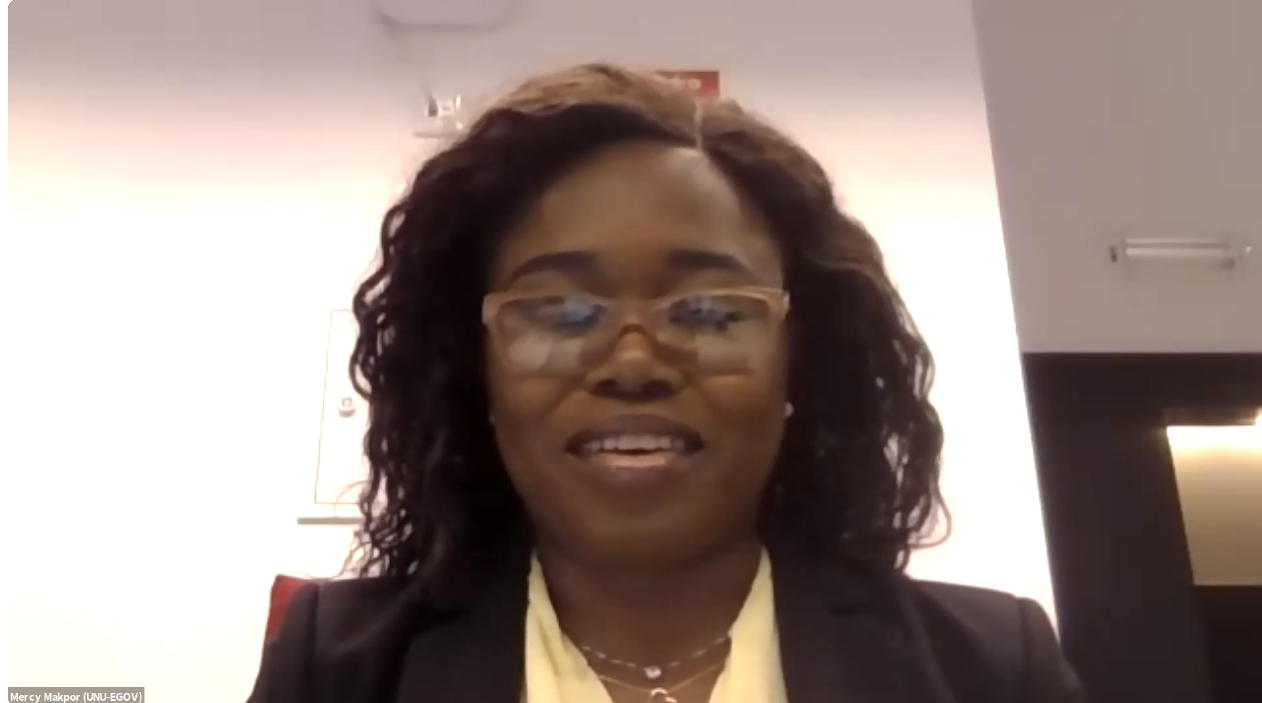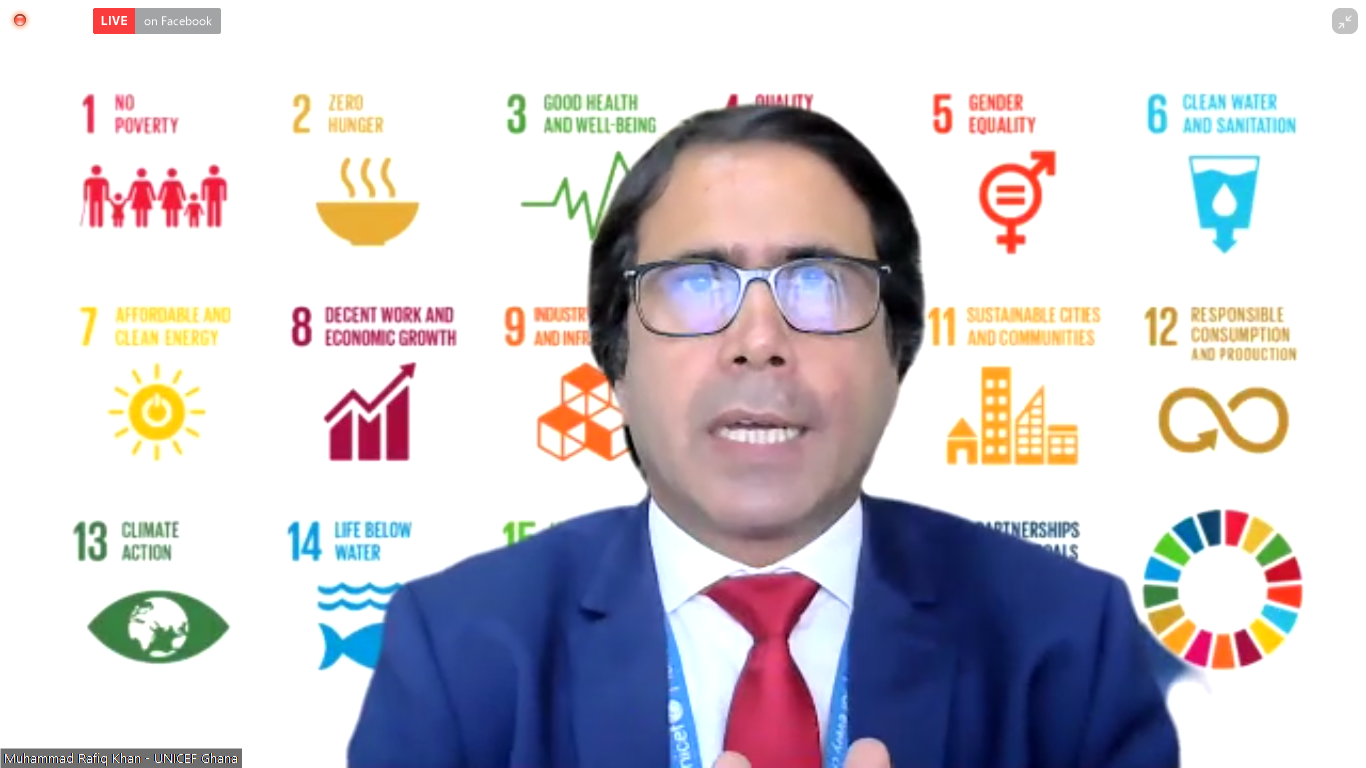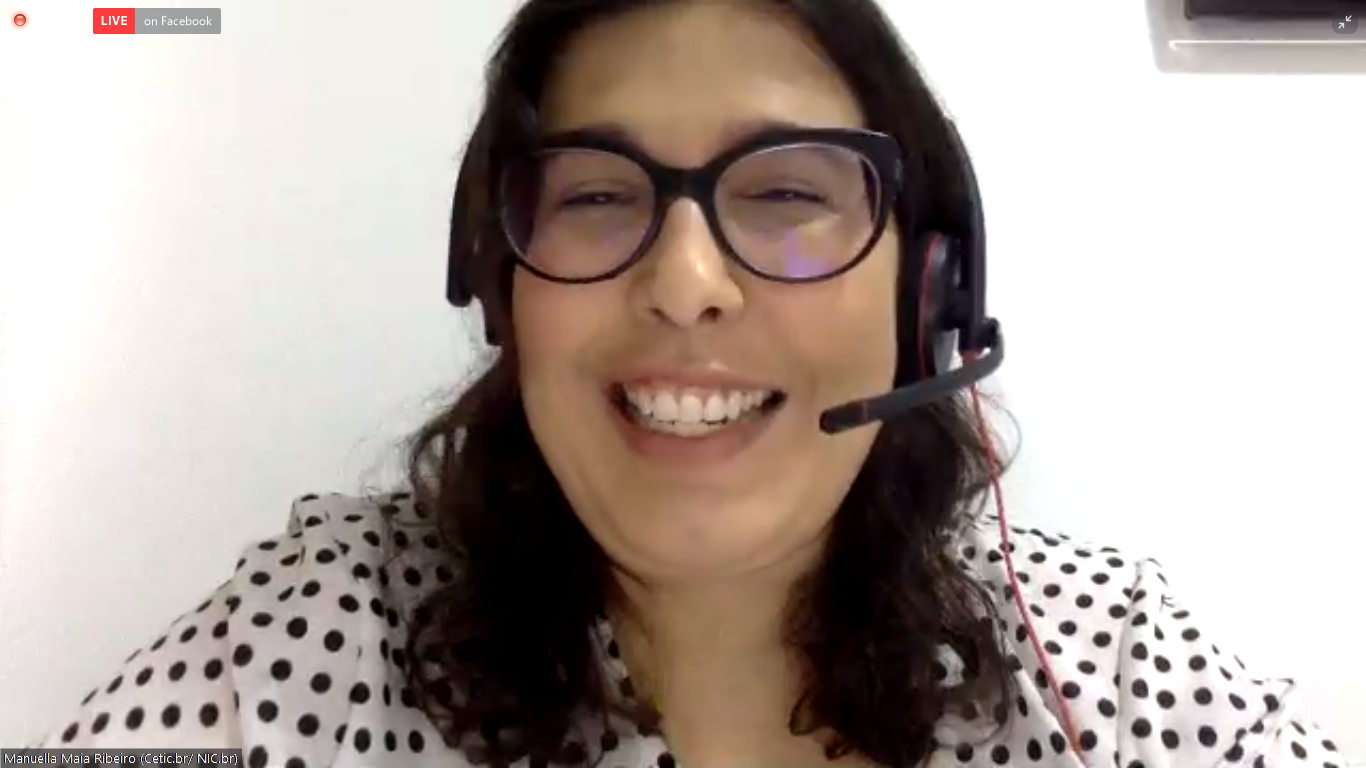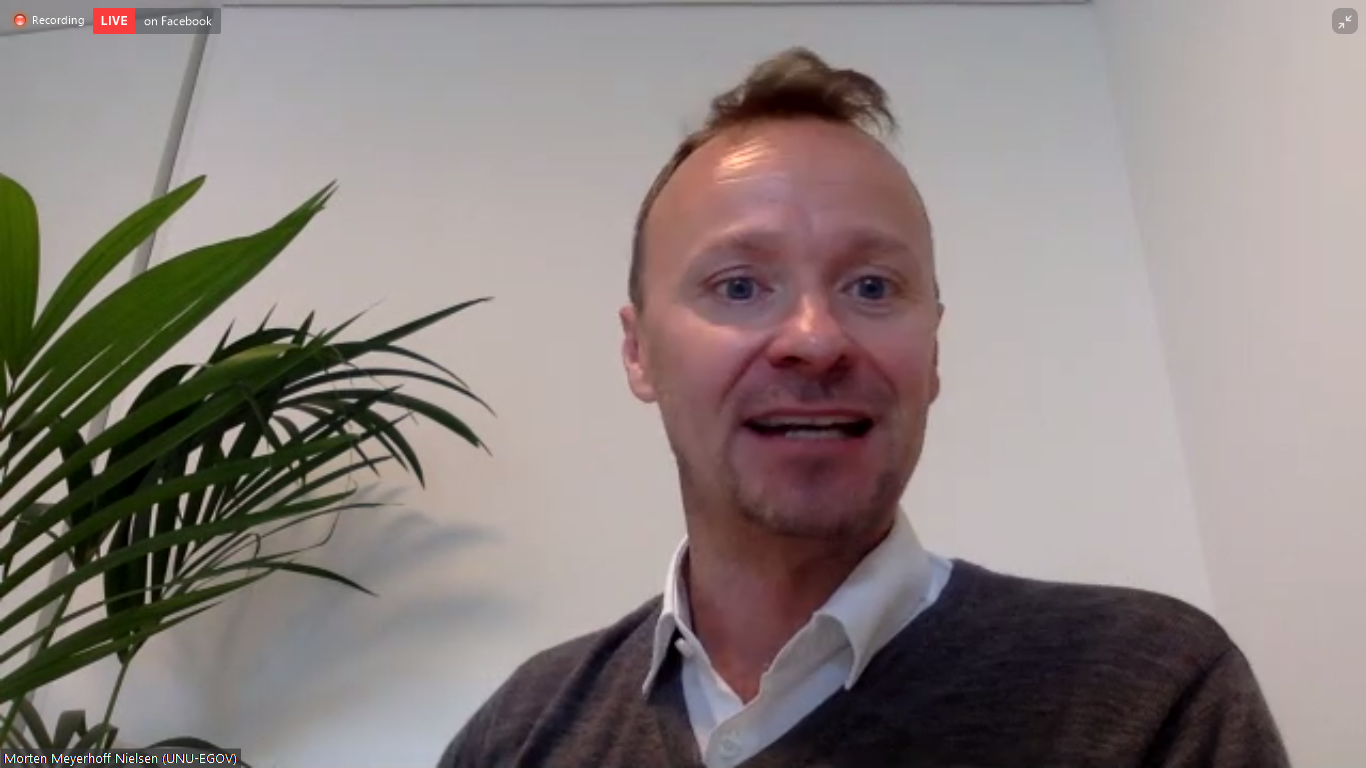Children and the digital transformation of public services: The state of affairs
UNICEF/United Nation University Operating Unit on Policy-Driven Electronic Governance
Session 317
The digital revolution is upon us! An increasing number of government services are available to children and families online, not least essential digital education, health, and social services during the global COVID-19 pandemic. Digital services have a recognised potential to improve service relevance and accessibility for children. In light of little systematic understanding of what types of services are available or the enabling factors that provide effective child rights support, this workshop will present and discuss the findings of the Government digital services and children: pathways to digital transformation analysis and its implications for service providers.
Within the wider context of the UN Sustainable Development Goals this policy workshop is part of a UNICEF - UNU-EGOV initiative to develop a better understanding of the opportunities, challenges, and best practices in e-governance and online service provision with respect to children and young people.
The findings will inform national authorities, NGOs, and country offices of international organisations on the opportunities and challenges of e-services to maximise the positive outcomes for children. During the workshop, the audience will be actively engaged in discussion on the appropriateness and practicality of the proposed framework and subsequent recommendations. The feedback will be used to inform the project and its policy recommendations.
AGENDA:
- Motivation, objective, state-of-affairs, by Jasmina Byrnes, UNICEF, Office of Global Insight and Policy
- Why digital government transformation for children? Findings to date, by Morten Meyerhoff Nielsen, United Nations University - EGOV
- The case of Ghana, by Mohammad Rafiq Khan, UNICEF, Ghana Country Office
- The case of Brazil, by Manuella Maia Ribeiro, NIC.br / Cetic.br
- Policy recommendations, discussions and exercises, moderated by Jasmina and Morten
- Summary and next step, by Jasmina
TOPICS: Digital Inclusion, Children, Age, Gender, Public Services, Impact, Policy Recommendations, Digital Transformation, Sustainable Development Goals etc.

Jasmina Byrne is Chief of Policy at UNICEF’s Office of Global Insight and Policy, where she oversees frontier policy portfolios for the organization ranging from digital technology to governance and the environment. Jasmina leads the Office’s flagship initiative towards a data governance for children manifesto. Prior to this, she led UNICEF Office of Research (Innocenti) work on children’s rights in the digital age, co-leading the Global Kids Online research initiative.

Morten Meyerhoff Nielsen is an EGOV Adviser at the United Nations University - EGOV, an international think tank working with the digital transformation of the public sector.
He is currently responsible for multiple digital transformation projects on performance management, strategy, and capacity development in Georgia, Uganda, and Saudi Arabia. He leads projects with the International Social Security Association on digital inclusion in relation to service production and delivery, and with UNICEF and the Digital Future Society on the impact of the digital transformation of service delivery on both marginalized communities, children, and women.
Morten regularly runs executive training on the digital transformation of the public sector and is a guest lecturer at several European universities.
Past employment includes the Danish Agency for Digitisation, Danish Technological Institute, European Institute of Public Administration, Centre for the Development of Enterprise; European Commission, and University of KwaZulu-Natal.
Morten has bachelor's degrees in political science and economics from the University of KwaZulu-Natal (South Africa), a masters from the University of Birmingham (UK) in international economic management, and a Phd in technology governance from Tallinn University of Technology (Estonia). He is an author and co-author of various publications, a reviewer for various journals, on multiple conference committees, and a juror on several awards committees.
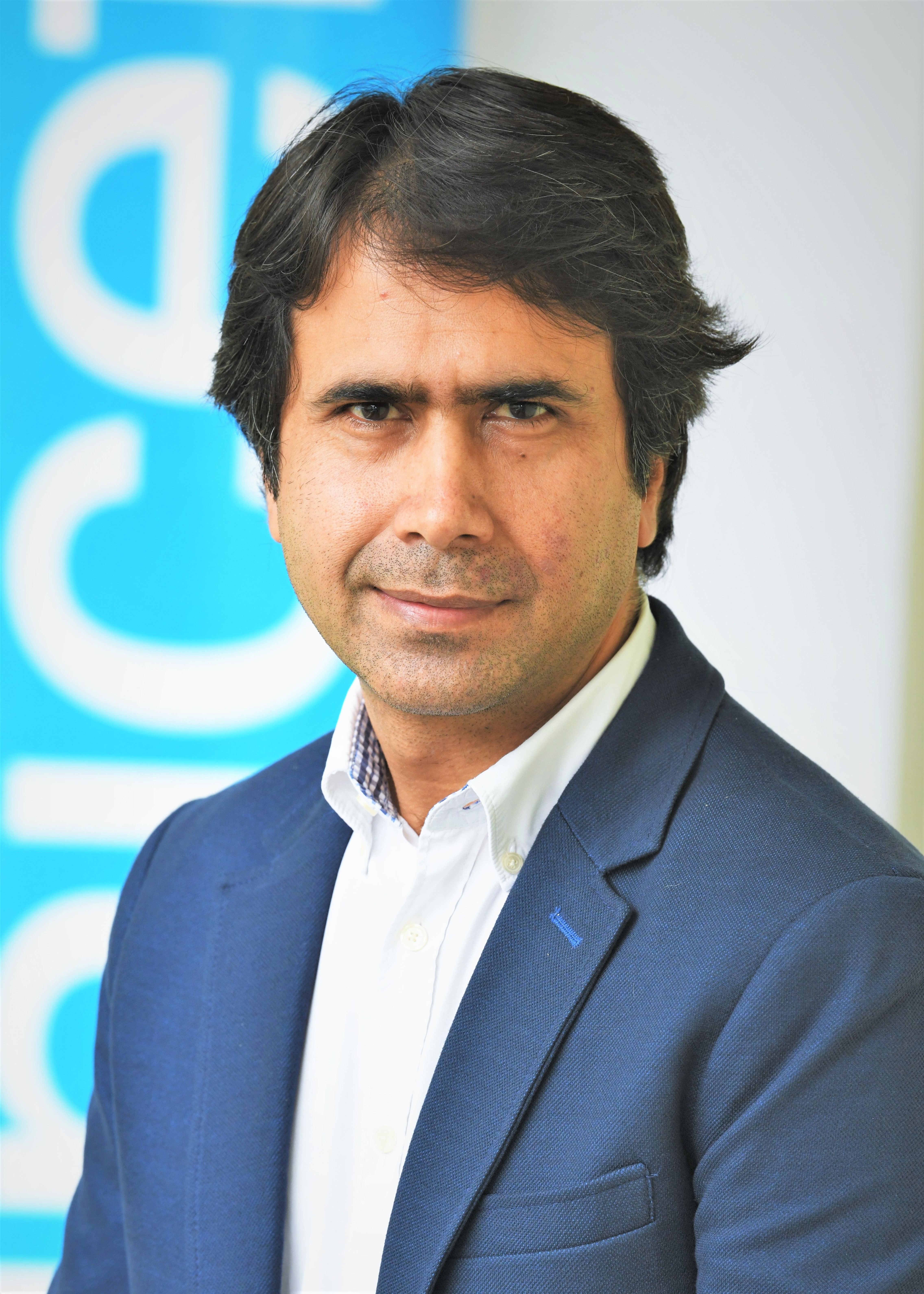
Muhammad Rafiq Khan, currently working as Chief of Child Protection programme for UNICEF Ghana Country Office. He has two masters; Master in Human Right from Curtin University, Perth-Australia 2007-2008; M.Phil. in American Studies from Quaid-i-Azam University, Islamabad – Pakistan (2001-2004). He was at the United Nations University, Tokyo-Japan as UNU Fellow in 2016 and studied human rights and international cooperation and development. Rafiq has worked with UNICEF and NGOs for over 15 years in the child protection sector. He has worked in Pakistan, Jordan (for the Syria crisis), Egypt and Ghana. He moved to Ghana about three years ago and has been involved in different child protection related programmes covering violence against children (both online and contact abuse), including sexual violence, child trafficking and child labor, access to justice for children, ending child marriage and birth registration. He is passionate about exploring the power of technology to empower children and end violence, abuse exploitation.

Manuella Maia Ribeiro is an information analyst at the Regional Center for Studies on the Development of the Information Society (Cetic.br), a department of the Brazilian Network Information Center (NIC.br), linked to the Brazilian Internet Steering Committee (CGI.br). Cetic.br is also a Category 2 Center of Unesco and the first Unesco center related to the development of information and knowledge societies.
Since 2013, she coordinates the ICT Electronic Government survey. It is a national study that measures the use of technologies in the Brazilian public sector, including data on ICT infrastructure and management, digital public services, transparency and electronic participation. Manuella is also responsible for the coordination of ICT Non-profit Organizations and ICT Public Access Centres surveys.
She has been conducting research on how governments can improve their relationship with citizens through the use of technologies. In this connection, she has studied the digital transformation of public sector service production and delivery at local, regional and national level in a Latin American and Brazilian context. Manuella holds a PhD and Master Degree in Public Administration and Government from Getulio Vargas Foundation (Brazil), and a BSc Degree in Public Policy Management from the University of São Paulo (Brazil).
-
 C1. The role of governments and all stakeholders in the promotion of ICTs for development
C1. The role of governments and all stakeholders in the promotion of ICTs for development
-
 C3. Access to information and knowledge
C3. Access to information and knowledge
-
 C4. Capacity building
C4. Capacity building
-
 C5. Building confidence and security in use of ICTs
C5. Building confidence and security in use of ICTs
-
 C7. ICT applications: benefits in all aspects of life — E-government
C7. ICT applications: benefits in all aspects of life — E-government
-
 C11. International and regional cooperation
C11. International and regional cooperation
Digital inclusion is a precondition to address current global challenges but for a successful transition of society in the 4th industrial revolution. The COVID-19 pandemic has highlighted both the opportunities and challenges of the digital transformation. Children are both directly and indirectly impacted by this. Building on the guiding principle of the WSIS Action Lines of “benefits in all aspects of life”, the need to address the digital divide, the impact of the digital transformation of service delivery has a direct impact on children, their parents, and guardians and is, therefore, a factor in all 11 Action Lines in some way. Particular relavant is the capacities (C5) and role of governments, stakeholders (C1) and international and regional cooperation (C11) by ensuring secure (C5) access to information and services for all (C3, C7).
-
 Goal 1: End poverty in all its forms everywhere
Goal 1: End poverty in all its forms everywhere
-
 Goal 3: Ensure healthy lives and promote well-being for all
Goal 3: Ensure healthy lives and promote well-being for all
-
 Goal 4: Ensure inclusive and equitable quality education and promote lifelong learning opportunities for all
Goal 4: Ensure inclusive and equitable quality education and promote lifelong learning opportunities for all
-
 Goal 5: Achieve gender equality and empower all women and girls
Goal 5: Achieve gender equality and empower all women and girls
-
 Goal 10: Reduce inequality within and among countries
Goal 10: Reduce inequality within and among countries
-
 Goal 16: Promote just, peaceful and inclusive societies
Goal 16: Promote just, peaceful and inclusive societies
-
 Goal 17: Revitalize the global partnership for sustainable development
Goal 17: Revitalize the global partnership for sustainable development
Digital inclusion is a precondition to address current global challenges but for a successful transition of society in the 4th industrial revolution. The COVID-19 pandemic has highlighted both the opportunities and challenges of the digital transformation. Children are both directly and indirectly impacted by this. Building on the guiding principle of the SDGs of “leaving no one behind”, the need to address the digital divide, the impact of the digital transformation of service delivery has a direct impact on children, their parents, and guardians and is, therefore, a factor in all 17 SGDs in some way.
